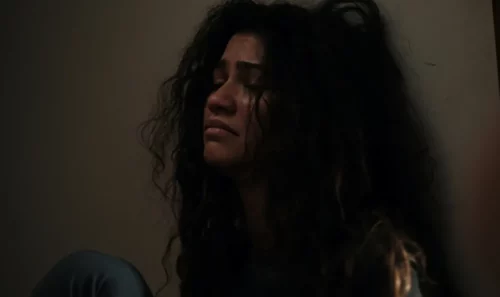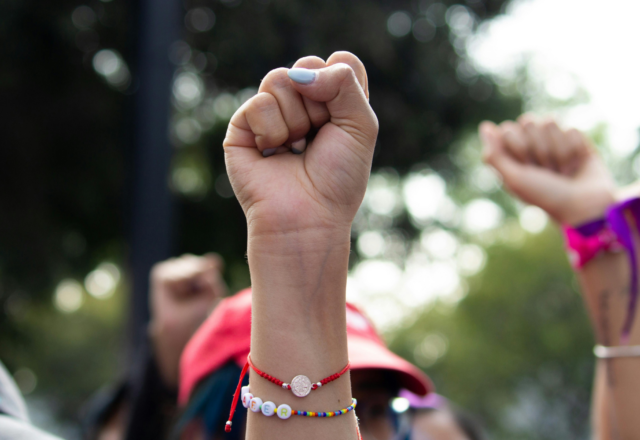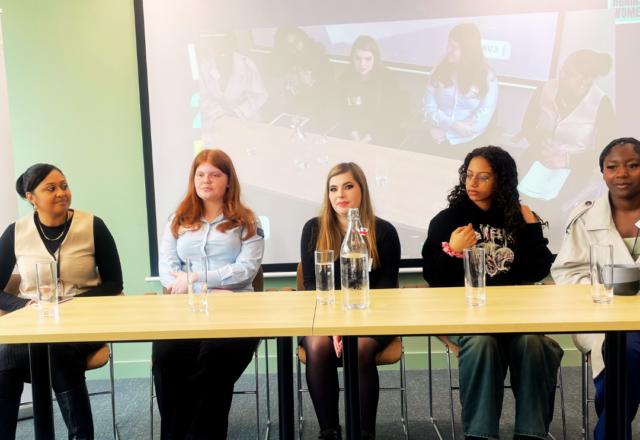Euphoria is probably in the top most talked about television shows of all time, you can’t escape hearing about it on some form of media. With its iconic style and its introduction of a new class of superstars, Euphoria is a massive part of the social zeitgeist. The show has been running for two years and includes many characters with many individual stories, so I will not take the time to go into too much detail about every plot line in the show, but this is a spoiler warning. The main themes of Euphoria are drug abuse, romantic relationships, friendships, familial relationships, youth, self-image and self-worth in the modern day, and self-discovery. Written and created by Sam Levinson, the stories follow teenagers using sex, drugs and parties as an escape from the monotonous routine of school, with very real consequences.
(Please note: this blog post mentions and explores themes such as drug abuse, sexual assault and intimate abuse)
Euphoria follows main character and drug addict Rue and her circle: Jules who has a passionate relationship with Rue, “it-girls” Cassie and Maddie, Kat who deals with desirability issues as the only plus size friend in the group, Nate who was in a toxic and explosive relationship with Maddie before switching to Cassie in the second season, Fezco the local drug dealer, Elliot the new kid, and Lexi as Cassie’s shyer sister. Euphoria season two carried the same themes and reemphasised them to a larger degree with a new focus on the long-term effects of an abusive relationship on Maddie, Lexi’s self-discovery, and Rue’s worsening drug addiction as she meets Elliot at the worst time while off the wagon.
The much anticipated second season surely put pressure on the cast and crew to live up to expectations. The second season received criticism of being “no plot, just vibes” – referring to how this season doubled down on the artistry with a large focus on music and cinematography and subsequently had a less clear episode to episode plot. Nevertheless, the exploration of themes and heavy subjects not usually associated with stories of teenagers allowed the show to fulfil its potential of being an important aspect of our contemporary pop culture.
But is this good for the next generation of teenagers? Euphoria includes graphic scenes of sex, violence and drug abuse and is clearly rated 18+, but – those coming from the generation raised on Skins at too young an age will agree – we know that this won’t stop a younger audience from watching. It is naïve to think that a show that focuses on a particular age group is not going to inevitably have viewers of this same age group. But does that put a responsibility on Levinson to make his content more age appropriate or does the duty fall on parents to more carefully monitor their children’s media intake?
Euphoria follows predecessors, like Skins, as a show that centres teenagers but constantly pushes the boundaries. The difference is Euphoria operates this role with a much larger audience with much more immediate engagement. This enormous pressure could perhaps an explanation for the stronger focus on ‘vibes’ over ‘plot’ this season.
Like its predecessors, Euphoria has been accused of glamorising its adult themes for their younger audience. However, at least with regards to drug abuse, I would argue Euphoria has beaten these allegations, especially this season in episode five. If anything, giving Rue’s lack of sobriety and the implications a spotlight has portrayed the more honest and realistic view that drugs are fun until they aren’t. Drugs have an undeniable appeal, but Euphoria does not shy away from how this good does not outweigh the bad, such as Rue’s near cardiac arrest in the first episode, her destroying her own life and relationships in episode five, and how hard withdrawal is. But season 2 reminds us that there is light at the end, by showing Rue in a happier and healthier place in her sobriety. If anything, I think Euphoria has done a much better job than its predecessors to de-glamorise drugs.
Moreover, Jacob Elordi has gained many fans, but Nate as an indisputably awful character has never glorified abuse. Both Maddie and Cassie are left traumatised by the abuse they suffered, with Cassie left isolated and alone. Finally, Kat’s self-image issues were impressively dealt with in episode two. More in tune to the contemporary teenage experience of today, Kat may have improved her confidence from the first season but is still burdened by the immense accessibility of social media and pop culture. Being constantly, bombarded with the “self-help cult” and how self-love has been capitalised and marketed to young women as something they can buy into and something they have the responsibility to overcome reflects a very real and constant battle today’s young people go through.
A common critique of Euphoria is that its overtly and overwhelmingly sexual narratives that only focus on teenagers is strange, and that this better represents university aged adults rather than school children. While I agree that the nudity and sexual scenes are excessive and are more for shock factor than plot, I still maintain that the show could have only taken place in high school. Youthful rebellion and curiosity are a large part of the motivations for these characters’ vices; they represent that age where you are on the cusp of adulthood and desperately want independence after over a decade in formal and rigid educational and familial institutions. Jules and Rue’s solution to literally run away in the first season exemplifies this. Having experienced the university age, I do believe that the objectively bad decisions and limited outlook of Euphoria would not work as well with characters who have experienced adulthood, agency and freedom in university – Euphoria’s level of rebellion simply would not translate. Additionally, despite still being big issues in adulthood, self-love and relationship dynamics are typically better managed with age and experience. Episodes five and six remind us that these are just children, with Jules finally bringing an adult into the serous situation, and with episode six focusing on relationships with their mothers.
That being said, I am in no way arguing that Euphoria is perfect; it has certainly strayed away from some of the things that made the first season a phenomenon. The decline of Kat’s screen time and therefore story on her experiences as the only plus size character. McKay, the only black male, was only in episode one of this season and the trauma from his sexual assault has subsequently been abandoned. Maddie and Rue’s experiences as the only women of colour are not explored, particularly Maddie being portrayed as the ‘spicy/sassy Latina’ character to justify any dislike towards her, despite no evidence that shows her as the ‘mean girl’ she is described as.
This isn’t the first time accusations like this have been hurled at Levinson; Malcolm and Marie was critiqued for being inappropriate for a white writer to try and tackle the complex experience of black Hollywood. Moreover, despite the inclusion of a queer women of colour and a queer trans woman as the main romantic leads, Rue and Jules’ characters remain undeveloped in some key aspects. Some have criticised Levinson for ‘not writing Rue as black’ because her experiences in an all-white suburb, and her relationship with her mother, do not represent the typical black girl experience and do not highlight the nuance that would come with her race. And Jules’ special episode has become a fan favourite because of how it explores her experiences as a young trans woman in a binary cishet world. Credit here must be given to Hunter Schafer who was allowed to bring her own experiences into the writing of this special episode. Jules’ significant move to go off hormones and wear a binder, contrasting to how she previously used her sexual experiences to signify womanhood in the first season, should have been explored much more but was ignored in this season.
I do think you can write about things you don’t necessarily experience, but only when you include those who have those experiences in the process. Sam Levinson obviously lacks the necessary nuance to write different characters and perhaps him being the only writer in the room will be his downfall.
Euphoria is an 18+ show but does touch on issues related to Tender: abuse, relationships LGBTQ+ issues, youth and gender roles. I maintain that it would be naïve to think that only adults watch this show, so I think, given its hold on pop culture, it is worth discussing its merits and faults. Given the ‘secret’ impressionable audience, I once again ask the question, who is responsible for the content children consume? The creator? Or the parents? I do think if you have watched Euphoria and felt inspired by the characters to follow in their footsteps then you have hugely misunderstood. But, obviously, mine is an adult perspective, so whether this message has reached a more impressionable audience is yet to be seen, but I do have hope for the younger generation in their media literacy. I don’t think there is necessarily a right answer, but discussing these issues in a less dramatised and real life context, as Tender does, can help make the youth less impressionable to the more adult themes they are more easily exposed to.
(Images: Euphoria, HBO)



